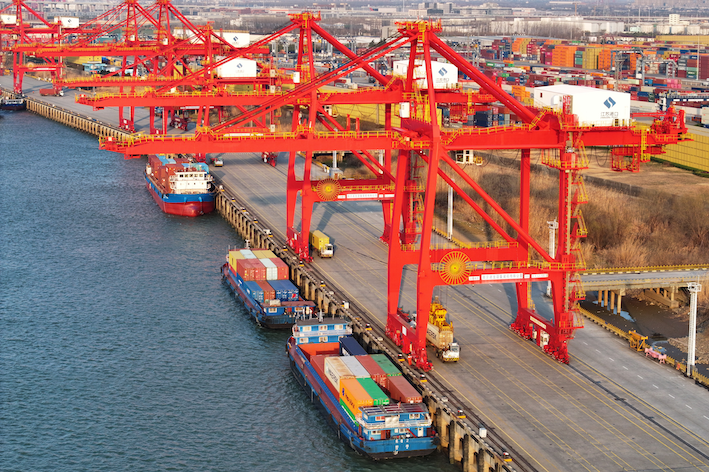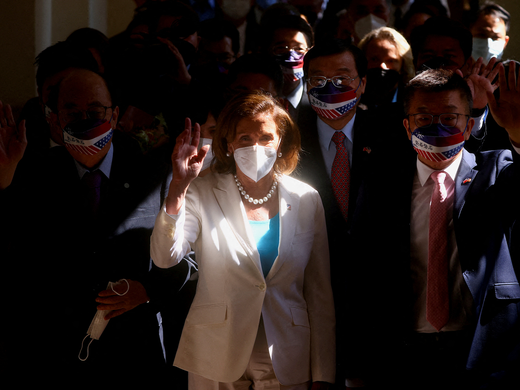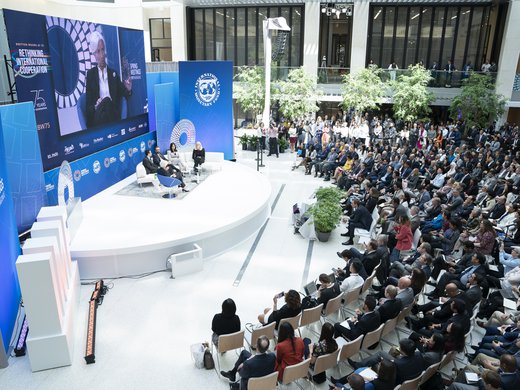The old world order is coming to an end. Notwithstanding the return of US President Donald Trump and his commitment to global trade wars, the international order led by the United States is unwinding. China is now returning to its historical position at the centre of the global economy even as regional powers such as India, Russia, Türkiye and Iran have unmoored the geopolitical singularity of the United States. As realist scholar John J. Mearsheimer concludes, the liberal international order erected after the Cold War is collapsing.
In fact, we’ve seen this movie before. Current geopolitical tensions bear a striking resemblance to events preceding the First World War, as competition between Britain and Germany fomented decades of global destruction. Much as then, geopolitical rivalry between the United States and China — and, to a lesser degree, Russia — have provoked global uncertainty and an acute fear of great-power war. Notwithstanding the enormous achievements of the Bretton Woods era, institutions such as the United Nations, the World Trade Organization and the International Monetary Fund have lost much of their political influence.
This dramatic shift in the global balance of power is the result of a confluence of events that has provoked a crisis in confidence across the Western world. Just as the decline of the British Empire marked a transition from colonial rule, the end of America’s liberal hegemony represents the end of the Bretton Woods era. China’s return as a great power is redefining geopolitical alliances and economic dependencies. What is now clear is that America’s unipolar moment has given way to a new multipolar system in which US-China competition — particularly in the field of advanced technologies — represents the frontier of a new global order.
Beyond Hegemony
At the bleeding edge of this new order is artificial intelligence (AI) and robotics. Throughout much of the twentieth century, America was the lodestone of the international system, due in large part to its economic and technological leadership. This is simply not the case today. Whether it is battery technologies, electric vehicles, quantum communication technologies, hypersonic weapons or high-speed rail, China is scaling and capturing the commanding heights of the global economy.
As scholar Angela Zhang argues, China’s dramatic achievements in advanced technologies are no accident. Chinese planners have been positioning the country’s industrial clusters to crack Silicon Valley’s technology hegemony for some time. In AI, for example, China’s distributed approach to innovation has enabled nimble firms such as DeepSeek to outperform many of Silicon Valley’s best at a fraction of the price. Notwithstanding the fact that the United States has led the world in groundbreaking innovation for more than a century, China’s industrial capacity is now resetting the geotechnological landscape.
While American firms have largely dominated hardware, software and technical standards, recent breakthroughs in China’s strategic capabilities represent the rise of a Chinese “technosphere.” In fact, the global order is bifurcating, as Chinese trade shifts to the Global South and Western economies attempt to “derisk” from China’s expanding market. Rather than provoking further economic fragmentation, policy makers should begin to focus on repairing US-Chinese relations. Indeed, only a US-China rapprochement can provide the framework needed to avoid repeating the crises of the past century.
Toward a New Modus Vivendi
The dangers of military confrontation in this period of history are obvious. Relations between the United States and China have deteriorated to their lowest point since their rapprochement in the 1970s. Beijing and Washington are now beginning to develop and lead bounded systems that compete across economic, military and technological domains. Bloody proxy wars in Ukraine, Israel and Syria have exposed the weakness and fragility of the liberal order, while nations around the world — including the United States — now favour nationalism over globalization. Rather than a new Cold War, what the world needs most is new US-China rapprochement.
While it may be difficult to imagine a new modus vivendi between Beijing and Washington, it remains the case that both nations have a shared interest in maintaining the peace and prosperity of the Bretton Woods era. Rather than dividing the world into spheres of influence, the United States and China could reverse ongoing geopolitical fragmentation and avoid the crises of the past century. Indeed, growing geopolitical friction in regions around the world underscores the need for renewed cooperation in maintaining and rebuilding the international order.
Alignment between the United States and China, notwithstanding differences in their world views, could enable the stability and governance needed to secure a prosperous future. By finding common ground on issues overlapping social inequality, global governance and climate change, the United States and China could enable a more inclusive, secure and dynamic future, ensuring that emerging technologies such as AI and robotics serve humanity rather than deepen geopolitical conflict. Of course, any US-China rapprochement would require a shift from zero-sum thinking to a mutual respect that balances competition with cooperation. Instead of supporting public policies that provoke technological decoupling and the threat of great-power war, both nations should endeavour to work together to establish a framework for peace.



